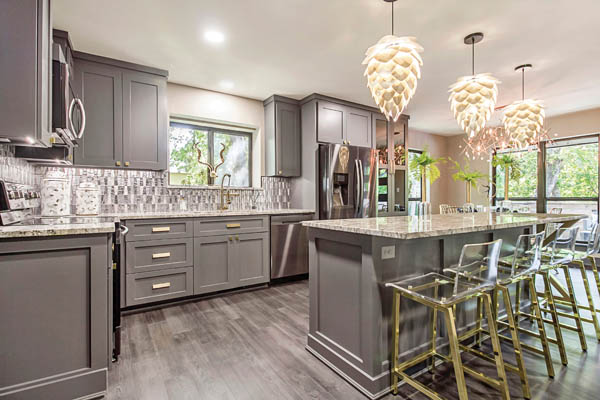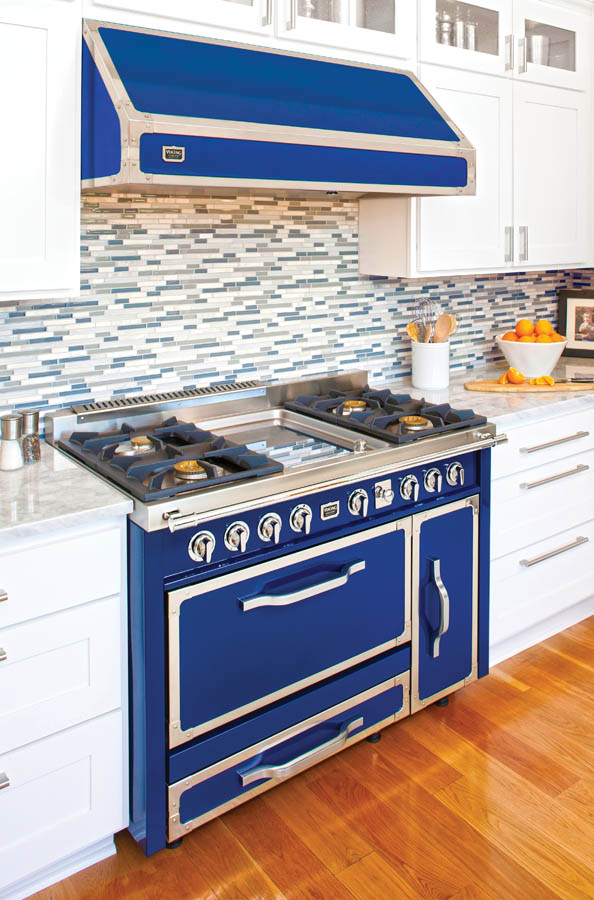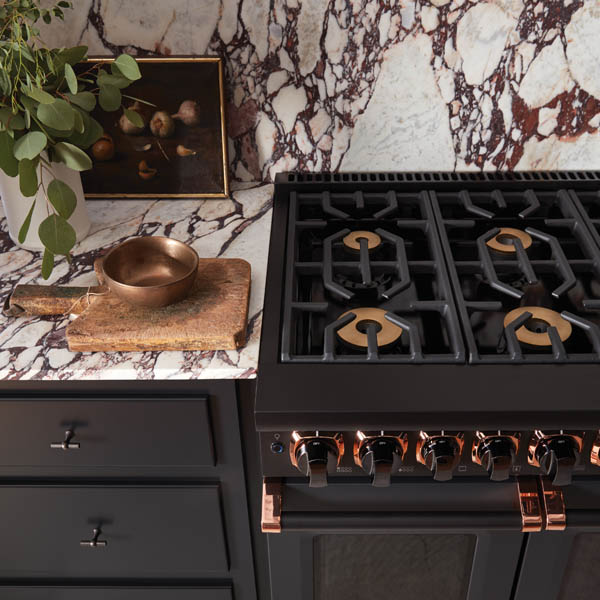When the heart of the home lacks the livelihood it once had, it can affect the way you live and the way you feel about your house. This important space inspires people to buy or sell a home. But no need to move. You can have your dream kitchen with proper planning, a masterful designer and just the right finishes. Turn the page to learn how.
Enlist the Pros
Depending on the scope of your kitchen remodel, you might need an architect and an engineer, but if you’re giving your space a refresh without changing the footprint, a great kitchen designer will help you plan, purchase and produce the entire project.
Courtney Wells started her career working on design teams at Gap and Pottery Barn Kids. But when a friend started her own design firm, Wells got curious. A move from San Francisco to Denver seemed like the best time to start anew in business, too. She launched LuSi Design in 2017 and credits the Mile-High City with her instant success.
“I could not do it without this community and my clients’ trust in me,” she says. “I love helping clients feel passionate about their homes.”
Planning and Vision
The early phases are all about planning and functionality. Wells asks lots of questions such as: What’s your current kitchen lacking? What does your dream kitchen look like and how does it function? Do you entertain? What’s your role in the kitchen: Are you someone who has a passion for cooking or a private chef? Do you prefer microwave meals? She also asks: What’s your budget?
“People are afraid to share their budget,” she says. “But I must know my client’s comfort level, then I can help determine where to splurge and where to pull back. That whole process makes them less intimidated.”
Next, it’s time to get busy with the concept design. Look through kitchen and home magazines to get ideas. Do you love a white kitchen with pops of color? Maybe a very neutral palette throughout? Do you envision your new space as sleek and modern or cozy and warm?
Defining the Design
“Now, we’re choosing finishes,” Wells says. “The floor plan and design are happening simultaneously.” Everything needs to be accounted for, including: Where is the trash can in comparison to the kitchen sink? Glass cabinets? Open shelving? Do you want an appliance garage? Is there an area for a coffee bar? Stacked refrigerator or side-by-side?
Because appliances are a big part of the design as well as a sizeable investment in the project, it’s important to seek assistance early. Maureen Ledwell of Mountain High Appliance says homeowners are making different choices in kitchen appliances these days.
“We’re seeing customers upgrade and expand kitchen offerings such as ice makers, beverage centers, wine refrigerators and bar units,” she says. “And they are not only upgrading—they’re choosing a statement piece.” They might choose a range or a refrigerator—or both—in a bold color. Appliance manufactures are meeting new demands by offering matte white and matte black finishes. And they are mixing up their metals with copper, brushed brass and even rose gold accouterments.
Creating Cohesion
With an open-concept floor plan, it’s important to create a cohesive space. Wells considers what furnishings and design details the home already has as part of the design plan.
For instance, Wells recently completed a kitchen remodel project in Cherry Hills where she chose products that would be cohesive with the dark wood elements throughout the home, while also drawing design details from the new kitchen into the existing spaces. She refreshed a nearby alcove to create an extension of the kitchen. “I used the same countertop and edge profile as the kitchen island but opted for a different cabinet design,” she says. “Legs on the alcove cabinet make it feel like furniture, and now the space functions as a bar or area to serve food.”
Wells says the ways to create cohesive flow are through color, materials, lighting, accessories and window treatments. While these details might seem minor, they are the elements that will put the livelihood back into your kitchen, your home—and your life.


PHOTO: COURTESY VIKING 
PHOTO: COURTESY VIKING


